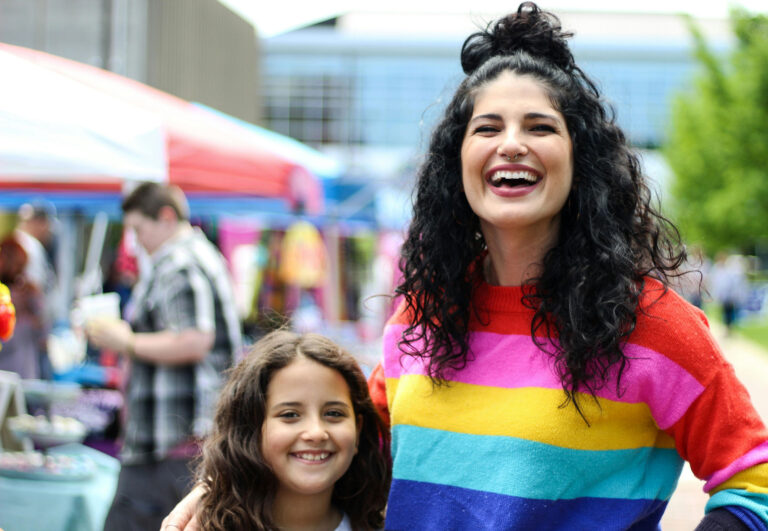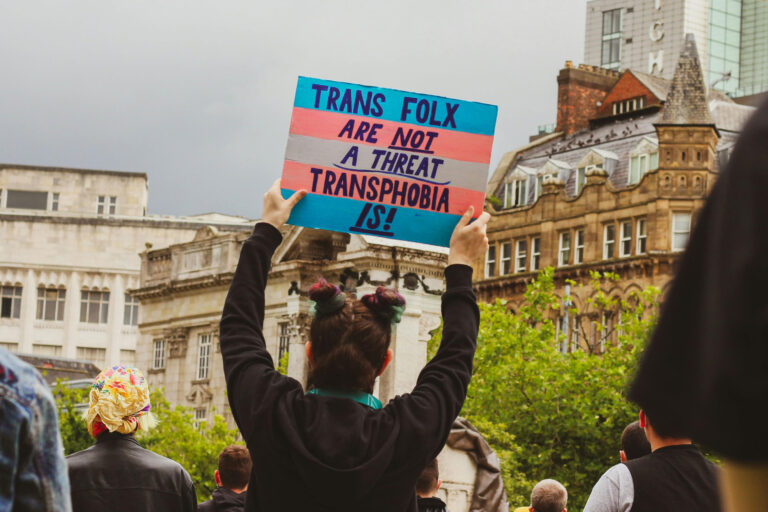While LGBTQ+ individuals are coming out at younger ages than ever before, not everyone is ready to come out in their teens or young adulthood as most media representations depict. Some LGBTQ+ people don’t embrace their identity until middle or even older adulthood. Coming out is an emotional journey that can impact mental health, and doing so when you have a straight spouse, and especially children, can make that even more complicated.
First Things First: Protect Yourself
Regardless of how anyone in your life responds, your first priority should be your safety – emotional, psychological, and physical. If their response is triggering or invalidating to you, you’re allowed to disengage from the conversation. If they become physical (or you’re worried they could), immediately get out of that environment and go somewhere safe.
Fear & Anxiety
Being vulnerable is scary, and once you come out to your family, you can’t undo that conversation. Maybe you’re nervous about your partner’s reaction, or maybe it even feels impossible or unrealistic to tell your partner that you’re LGBTQ+, especially if you feel like there’s a chance they will push you out of the family. You might feel like you’re “in too deep” or worry about starting over with dating. Or maybe you are concerned about the logistics of co-parenting and how it will impact your kids’ relationships with their extended family.
A lot of anxiety about coming out is related to the unknown. Take some time to prepare yourself for not only the act of coming out, but the changes that will likely come along with it. Think through possible reactions and how you might respond in each case. If it doesn’t go well, do you have a safe place to stay and people to lean on for emotional support? You can’t know exactly how the future will play out, but you can feel ready to move forward no matter how the conversation goes.
Guilt
Coming out while married has a tangible impact on the lives of people you love. You may feel like you’re blindsiding your partner or shaking up their life. Maybe you feel bad about breaking up the family or wonder if you’re hurting your kids.
Sometimes compatibility issues are discovered many years into a relationship, and that’s what this is. There’s no denying that this will be an adjustment for everyone involved, but it’s important for you to do what’s right for you – ultimately, being happy and true to yourself will make you a better parent than hiding your identity or staying in a situation that no longer feels right.
Grief & Heartbreak
Coming out as LGBTQ+ doesn’t necessarily mean ending the relationship with your straight partner, but, for one reason or another, splitting up may be the best option. Not only does this mean coping with the loss of a significant relationship, but potentially sorting through the legalities of separation or divorce and in many ways, needing to start parts of your life over.
Allow yourself time to heal – you have a lot of change to recover from. Take things one day at a time. As scary as it can be to have so much unknown and potential change on the horizon, plenty of people have found themselves in your position and thrived after coming out.
Loneliness & Rejection
When you’ve built a life with someone, coming out as LGBTQ+ can feel like it’s bound to be a particularly isolating experience. This transition period can be difficult, especially if you feel like you’ve lost your support system. Your partner may have a reaction that’s difficult to face, like confusion, shock, anger, or feelings of betrayal. Unfortunately, it isn’t rare to receive backlash from family members, especially if kids are involved. Some may accuse you of lying to your spouse or having affairs throughout the relationship. Some may try to prevent you from seeing your kids. Dealing with these accusations is painful and can leave you feeling like your whole self has been rejected. You may even regret coming out because of how much change and turmoil it has brought.
Remind yourself that living as your true self will be worth it. It may take some time to rebuild, but a life that allows you to be who you really are will feel so much better than a life spent hiding a part of yourself. Trust that these difficult feelings will become more distant as time passes, and as you grow into your newly out self.
Resiliency & Hope: Moving Forward as Part of the LGBTQ+ Community
Identifying as LGBTQ+ isn’t just about sex and relationships – it also comes with a community and culture that you’re a valid part of, regardless of the relationships you’ve had. Meet other LGBTQ+ folks in your local area or online. Find a social sports league, meet-up group, event, or even social media group or forum tailored to the LGBTQ+ community. Seek out people who have gone through similar experiences – they can help you navigate this new path and reassure you that it’s worth it. No matter your age, relationship status, or life experiences: Your identity is valid, and you are deserving of support, joy, and a fulfilling life.
While coming out is worthy of celebrating, it can be an uncomfortable process and take time to feel secure in your identity and stage of life. If it all feels like too much and your mental health is suffering, take a screen at mhascreening.org to determine if you may be dealing with a mental health condition. For more information on LGBTQ+ mental health, check out MHA’s Resource Hub.

